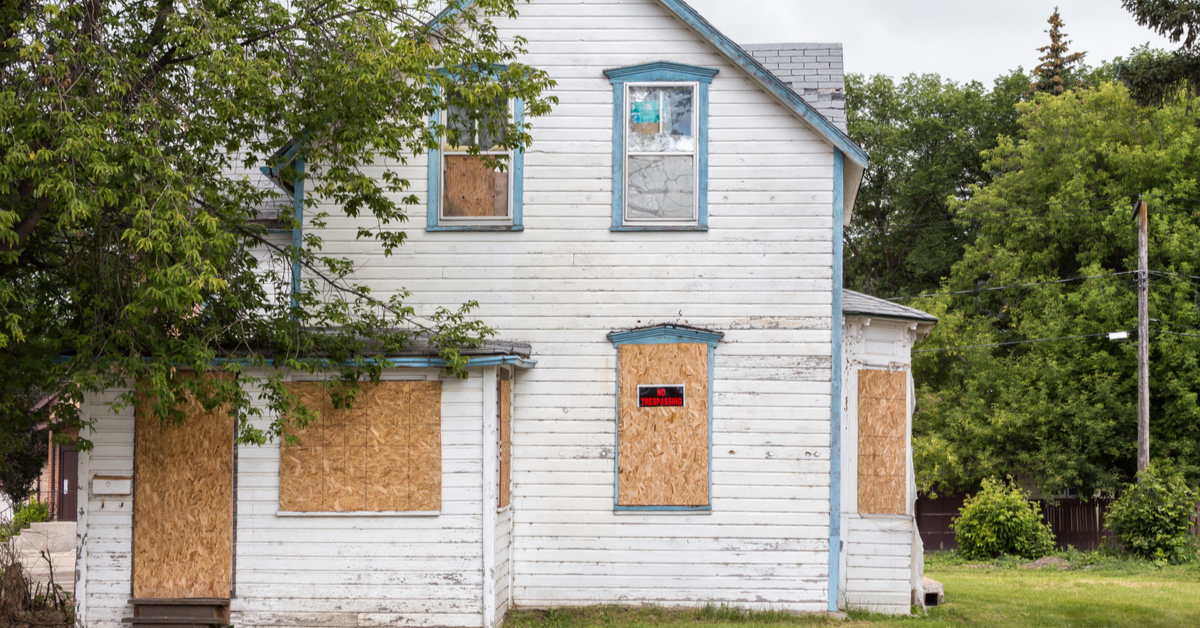
New York Requires Banks to Maintain Zombie Properties
New York recently enacted the Abandoned Property Relief Act of 2016 (“Abandoned Property Act”), legislation designed to clean up derelict and unsightly abandoned properties, lost in the foreclosure process. New York, like many areas of the country, including Florida, is faced with the serious problem of homeowners who abandon their properties after giving up their efforts to re-pay their mortgages and fight the foreclosure process. The properties sit abandoned, often stripped of all appliances and fixtures and in disrepair. There is no one maintaining the property and utilities are shut off. The properties become an eye sore to the community and adversely affect property values. In many neighborhoods, squatters may find a way in. Meanwhile, the foreclosure process lingers on. The properties have earned the name “Zombie Properties.”
The Abandoned Property Act requires mortgage servicers of 1st mortgages to take specific actions to determine whether a secured property is vacant and abandoned and if so, the servicer must comply with the New York Property Maintenance Code. When a borrower becomes delinquent for 90 days, the servicer must inspect the property within 90 days and then every 25-35 days thereafter during the delinquency to determine whether the property is vacant. A property is deemed to be vacant if on 3 consecutive visits no one is present or there is no evidence of occupancy and the property is not being maintained. Once it is determined that the property is vacant and abandoned and not maintained, the servicer has 7 business days to take steps to maintain the property. The new law applies to state or federally chartered banks, savings banks, savings and loan institutions or credit unions which originate, service or maintain mortgages in New York.
Florida has no comparable law, but zombie properties and foreclosures are a huge problem. In May of 2016, Miami-Dade, Broward and Palm Beach Counties had 651 zombie homes.
The City of St. Petersburg has considered tackling its zombie problem on its own. The city is debating whether to foreclose on its code enforcement liens and unpaid assessments on zombie properties. Then, when properties are under city control, the city would hope to sell to homeowners who would improve the properties and occupy them. More likely though, lenders would bid at the foreclosure sale to protect their interest, driving up the ultimate sale price prior to sale to the end users and the improvement of the property. This could have the effect of limiting the amount available for investment into the properties.
Legislation is pending in Congress which could take steps to combat the zombie property problem nationally. Representative Alan Grayson (D-FL) recently introduced H.R. 5108, the Zombie Property Relief Act of 2016 (“Zombie Property Act”). The Zombie Property Act would grant to the CFPB the authority to penalize financial institutions for not taking care of home they have instituted foreclosure proceedings upon. The Act would apply to any loan that is federally insured and is in foreclosure until ownership is transferred and a deed is recorded. Vacancy is determined by the owner providing written notice of its intent not to occupy and mortgagee having reasonable belief that the house is not occupied or there is an existing health risk.
While the Zombie Property Act has great intentions, it is not as strong as the Abandoned Property Act. The Abandoned Property Act applies immediately upon delinquency (3 missed payments). The Zombie Property Act would not apply until the foreclosure suit has been filed. This could be many months after delinquency. The Abandoned Property act imposes an affirmative burden on the mortgagee to go to the property and see if the borrower is occupying and maintaining the property. The Zombie Property Act relies on the borrower to advise the mortgagee whether borrower is vacating. Why would the borrower do this? There is no incentive for the borrower to do so.
A federal law relating to the maintenance of zombie properties is needed to protect property values and neighborhood. But, amendments are needed to the proposed Zombie Property Act. Congress should look to New York’s Abandoned Property Act for guidance and take appropriate action. And while we’re at it, the Florida Legislature should get involved and enact similar legislation.




No Comments
Sorry, the comment form is closed at this time.